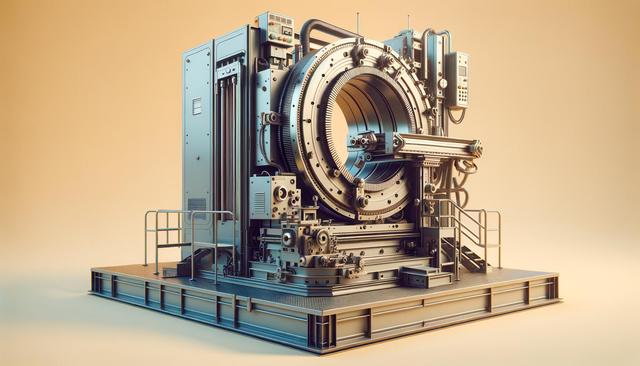Understanding Core Cutting Machines
Concrete core cutting machines are designed to drill cylindrical holes or extract core samples from solid materials like concrete, rock, and asphalt. These machines play a crucial role in infrastructure development, geotechnical analysis, and quality inspection processes. Typically, they come in handheld, rig-mounted, or trailer-mounted forms, each suited for different scales of work. Their primary components include a drill stand, motor, and a diamond-tipped core bit, which ensures precision and efficiency during operation. Professionals rely on these machines not only for their drilling capabilities but also for their ability to maintain structural integrity during material extraction.
Choosing the right core cutting machine involves evaluating several operational factors, such as:
- Power source (electric, hydraulic, or pneumatic)
- Drilling depth and diameter capacity
- Portability and mounting options
- Speed control and cooling system
These specifications determine how well a machine can perform in various field conditions, from confined spaces to open construction sites.
Factors Influencing Core Cutting Machine Price
The price of a concrete core cutting machine can vary significantly depending on its features, construction quality, and brand-independent manufacturing standards. Entry-level models may be sufficient for small-scale lab work or light-duty construction, while industrial-grade machines are built for high-frequency use and demanding conditions. Understanding what drives the cost is essential for making an informed investment.
Key elements that affect pricing include:
- Motor power and torque output
- Build quality and materials used
- Type and size of core bits supported
- Cooling mechanisms (water-cooled vs. dry cutting)
- Automation and safety features
Higher-end machines often come with advanced features like automatic feed control, overload protection, and digital depth indicators, which can significantly enhance productivity and safety but also raise the overall cost. Contractors and engineers should weigh these benefits against their project requirements and frequency of use.
Common Price Ranges by Machine Type
Concrete core cutting machines are available across a broad price spectrum, catering to a wide range of professional needs. Generally, prices can be grouped based on the type and intended application of the machine:
- Handheld models: These are compact and suitable for light-duty tasks. They typically range between $300 and $800, depending on motor capacity and drilling diameter.
- Rig-mounted machines: Used for medium to heavy-duty operations, these models offer stability and better precision. Prices usually fall between $1,000 and $3,000.
- Trailer-mounted or industrial machines: Designed for continuous use in construction or mining, these can cost anywhere from $5,000 to over $15,000.
It’s also important to budget for accessories and consumables such as core bits, extension rods, and water tanks. These can add to the total cost but are essential for maintaining the machine’s effectiveness over time.
Balancing Cost and Performance
When assessing the value of a core cutting machine, it’s not just about the upfront cost. Operational efficiency, durability, and maintenance requirements all influence the long-term return on investment. A lower-cost unit that wears out quickly or lacks the precision needed for critical applications may end up costing more in the long run due to downtime and replacement parts.
To strike the right balance, consider the following:
- Frequency of use – daily, weekly, or occasional
- Material hardness – concrete, granite, or asphalt
- Required hole sizes and depths
- Environment – indoor labs vs. outdoor job sites
For professionals working in unpredictable or high-demand environments, investing in a more robust machine could mean fewer breakdowns and more consistent results. On the other hand, for controlled environments like laboratories or specific project-based work, a mid-range or entry-level option may be sufficient.
Where to Buy and What to Watch For
Core cutting machines are available from specialized construction equipment suppliers, online industrial marketplaces, and local distributors. When purchasing, it’s essential to verify the machine’s specifications, warranty terms, and service availability. Always check that the seller provides detailed product documentation and supports after-sales service.
Some tips for purchasing include:
- Requesting a demonstration or reviewing video tutorials
- Reading user reviews for insights about performance and reliability
- Comparing inclusive features like water supply systems, bit sets, and tool kits
- Ensuring compliance with local safety and industry standards
Buyers should also be cautious of overly discounted machines from unknown sources, as they may lack essential safety features or fail to meet performance expectations. It’s worth investing in a machine backed by a reputable support network to ensure longevity and peace of mind.
Conclusion: Making an Informed Investment
Choosing the right concrete core cutting machine is a decision that directly impacts operational efficiency, safety, and project outcomes. Whether you’re a contractor working on infrastructure projects, a geologist conducting field sampling, or a lab technician analyzing material integrity, selecting a machine that aligns with your workload and budget is essential. By understanding the factors that influence pricing—from machine type and build quality to accessories and support—you can make a confident, well-informed investment that delivers precision and reliability in your core drilling tasks.






